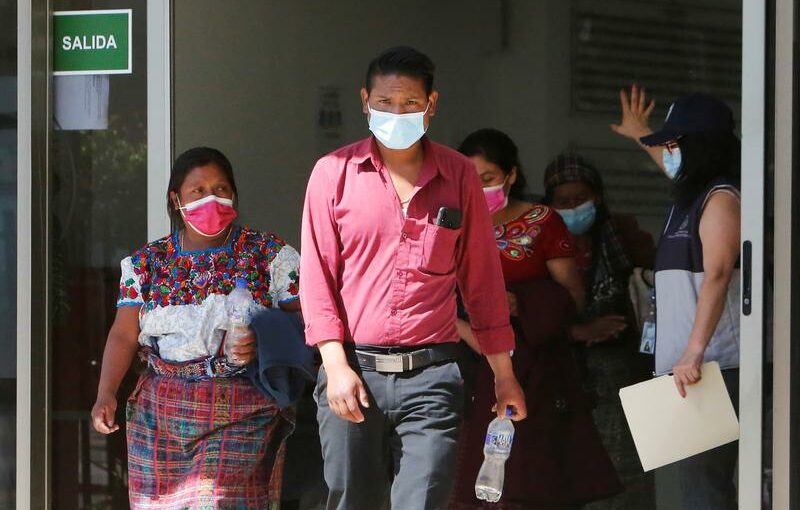GUATEMALA CITY (Reuters) – Guatemalan Maya families said on Monday they feared relatives were among bodies found over the weekend in a remote part of northern Mexico along a route popular with migrant smugglers heading towards the U.S. border.
After receiving a tip off in the border state of Tamaulipas in northern Mexico, Mexican authorities recovered 19 bodies, many of which had gunshot wounds and were badly charred. So far, the dead have not been identified.
Evaristo Agustin was among some 30 indigenous men and women who traveled to the foreign ministry in Guatemala City from distant highland provinces on Monday after word spread their relatives may be among the deceased.
The group provided officials with DNA samples to help with identification.
Agustin was looking for his 22-year-old brother-in-law.
“We heard about it from people already in the United States, family members and neighbors, who said our relatives were part of this group,” Agustin said, accompanied by women dressed in traditional yellow, blue and pink woven blouses and woolen skirts.
If confirmed that the victims were migrants, the attack would be among the worst atrocities in recent years against Central Americans in Mexico.
Migration has been on the rise from the region in recent months as families flee the devastation of two severe hurricanes and the economic damage from coronavirus.
The Guatemalan foreign ministry said in a statement it was working with Mexico to determine if any of its citizens were among the victims. Tamaulipas state prosecutor’s office said the case was being investigated.
A Twitter account for Guatemala’s Congress shared a statement later on Monday saying lawmakers “mourned the tragic death of our migrant brothers from San Marcos,” without offering more details.
DNA samples will be compared with samples taken from the bodies by the prosecutor’s office in Tamaulipas. The prosecutor’s office said the victims included 16 men and a woman. They were unable to determine the gender of two others.
Mario Ernesto Galvez, a Guatemalan lawmaker, said 13 victims were from his mountainous San Marcos province, listing their names in a statement.
“I only feel pain and sadness,” said Ramiro Coronado, who feared for his 31-year-old nephew.
“It was the first time he’d tried to travel to the United States to improve his life and that of his family. He’s leaving behind a wife and two children.”
Source: Read Full Article
